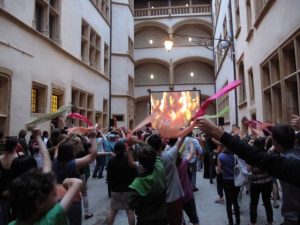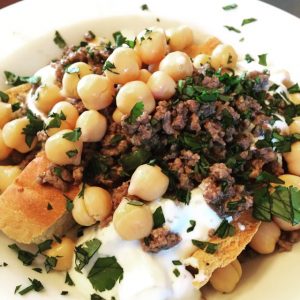Family
Remembering Uncle P. – A Tribute
I don’t know how to do it.
I don’t know how to understand a world that no longer has Uncle Pethro in it.
It’s not that I’m overwhelmed with grief at his passing. Losing my mother eight years ago shifted my perspective on death and dying. So, I am sad, I am heartbroken, I am bereft, but I am not in pieces.
Still, the journey of saying a final goodbye to someone who has been a constant fixture in my life is difficult. Coming to terms with the impact his loss has on others is even more fraught with emotions.
The formal obituary tells the story of Uncle Pethro’s life and outlines the legacies of his accomplishments, achievements, and successes. It pays tribute to his extended and extensive family and honours the woman who stood by his side over six decades, matching him stride for stride over the years, my Aunt Madge.
But who was this man to me?
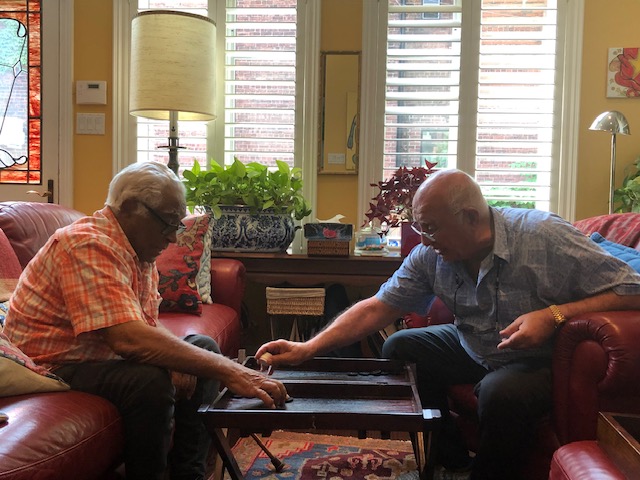
My mother’s first cousin and one of her best friends. Uncle Pethro and my mom shared a bond that helped each of them triumph over the reality of being outsiders. Others consigned them to the margins. They asserted their right to be at and in the centre. They made sure they were seen, heard, and recognized without compromising what they stood for and who they wanted to be. They did not accept the spaces others relegated them to and forged their own paths, carved out more imaginative lives, lived bigger stories than the ones others wrote for them.
Uncle Pethro was the man who would say, “Let me look at you!” even if you were standing right in front of him. He didn’t just want to see the face you presented to the world, he wanted to see the essence of who you were on the inside.
He was also the man with the all-consuming embrace. The man whose arms would wrap around you and make you feel protected, invincible, and treasured.
He was the man whose voice echoed in the room, whose voice was deep, resonant, and full. And — I say this with love — it’s a voice you heard often and at length because he loved to pontificate! He wanted to dig out the complexities of life, to talk about its nuances, to sort out its chaotic randomness at the same time that he could be rude, crude, and indelicate.
He was the man who had a pride of place. He loved Jamaica, the land of his birth, in all its contradictions, even if it was the home he had to leave to find the space to be free and to become the man he wanted to be.
He was generous, caring, and thoughtful, opening his doors, at home and at work, to a diversity of folk. He and Aunt Madge entertained well and often, and they set a standard as hosts that is difficult to achieve, and essential to emulate.
We all forgave Uncle Pethro his bombastic nature because underneath it all beat a passionate, life-full, and cheery heart.
Until it didn’t.
Ultimately, it was Uncle Pethro’s body that stopped working with him and started to work against him, that whittled away at him.
He was stalwart throughout each health crisis that battered him. His physical strength and mental toughness, along with Aunt Madge’s love, diligence, and care, carried him further and for longer than seemed possible.
When I moved to Toronto in 1986, Uncle Pethro and Aunt Madge welcomed me into their home and made sure I never felt alone in the vastness of the city or lost in the gulf of the choice I had made when I left home.
They saw me through the ups and downs of my time in that city, celebrated with me when things went well and consoled me when they did not. We shared food, drink, and conversation. We built a bond that transcended the familial connection. That feeling of being a part of each other’s lives became even stronger after I returned to Vancouver and our visits, because of the distance, became occasional rather than frequent.
Having spent the last few days in Toronto with Aunt Madge and the family, I’ve been reflecting on the past and ruminating on the future. Now I’m sitting here in seat 2B on Porter Air, Flight 309, surrounded by strangers, high above the clouds, and anxious to get home. I’m trying to make the pictures in my mind, of the vibrant, vital person I knew and loved, more animated and I’m fighting the way I feel that they are blurring and ebbing already. I’m trying to understand this new world that has lost that singular gravelly voice, that strong embrace, that hearty appetite, that appreciation for beauty, and that gift of laughter.
It’s not about making a saint out of my Uncle Pethro or remembering him as a paragon of virtue. It’s about knowing to love him as the man that he was.
Because if there’s anything I’ve learned from the years of being in Uncle Pethro’s company, is that to be human is divine even if we are flawed and our lives are finite.
To understand this world without Uncle Pethro is to understand that it was better with him in it, and that it will still be good because he was once a part of my mornings and my days, my nights, my years, my joys and my sorrows.
I will remember him.
Rest in peace Uncle Pethro.
Walk good.
Fragments of a Whole Being Belonging
I belong to Air Canada.
In this moment. January 2020.
Buckled into Seat 14C.
Far above where birds take flight. The place where dreams alone can live.
In this moment, I belong to this unbounded world above the clouds. A creature of the air.
This air-borne liberation is a mirage.
I know my feet belong on the ground. A creature of the earth.
I am on a flight to Montreal to visit friends. Their relocation to this city will bring me back again and again because our friendship is long standing and we will nurture it. My friends have also made me belong to Montreal again.
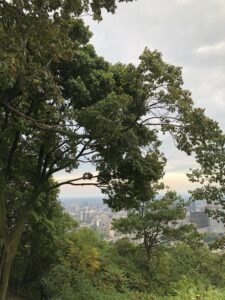
Again, because this is the city where my parents met. Where I was born, but never lived in for long. What part of me, then, belongs here? Belongs to this city where I speak the language only to a moderate level of fluency? Because all of me would not be if it weren’t for this city.
But countries and cities pull at me from all different directions.
Jamaica – my mother’s birthplace. Lebanon – my father’s. Kuwait – where my sister was born. Calgary – where my youngest sister was born. And Vancouver where we settled in 1974 and where my family has stayed since. All of us have ventured afar over the years, whether alone or together, to travel or to live for fragments of time. Toronto – where I lived for six years.
My whole being is a mosaic of spaces, places, and time. Of different cultures and societies. I identify with all of them and I identify with none of them. I am rooted in my experiences with each and am unrooted because I do not feel like I wholly belong in any of them.
They have all shaped me as have other cities I’ve visited, especially those that feel as if they are the locations where I ought to be, where I yearn to be.
In Montreal, my friends and I go to a movie they want to share with me. Their second viewing, my first.
Antigone (in French, Canada, 2019). Sophie Deraspe’s screenplay and her direction. Based on the Ancient Greek play by Sophocles. A play I know. A play that belongs to me because I have studied it, absorbed it, discussed it, taught it, remember it.
This film, this Antigone, which now belongs to me, too, tells the story of an immigrant family to Canada. Two girls, two boys, and a Grandmother, haunted by the memories of the children’s parents murdered in Algeria, in the country that they once belonged to.
In this country, this foreign Canada, do they belong?

Ismène, the older girl, has built a successful career as a hair stylist. The grandmother cooks, cleans, loves each child ferociously. Antigone is fearlessly devoted to the family, to their story, to their truth. In an address to her class, “une exposition,” she elevates her classmates from a state of boredom, heads on the desk, eyes rolling, to whip-straight postures, eyes that pierce through teenage school inertia. Her story of survival, loss, and grief lures them to listen.
Antigone’s two brothers? Étéocle and Polynice? The fierce family love envelops the two brothers and yet they search for belonging elsewhere.
Why isn’t their family enough?
And why do men so often find belonging in violence, especially vulnerable men?
The story of this dislocated, relocated family unravels in flashbacks and in real time. Antigone’s knowledge of her brothers, the appearance of their being and belonging, is contradicted by the reality she grasps in hindsight.
She remembers a night. Polynice creeps home late, after dark. He opens the fridge door, she startles him in the kitchen. He stands in the shadows, the pale light casting an eerie halo around him. Bruised, bloodied, black-eyed, he exults to his sister “I’m in,” “I’m in.”
In what? In toxic brotherhood? In a position to provide for his family now? In hopelessness? In power? In control, as illusory as that power and control may be?
Polynice is not a lone wolf. What he decides matters. It affects him, his brother, his sisters, his grandmother, his community. But he makes choices as if he were alone. Is his choice a resistance to belonging to this family or is it his way to belong more meaningfully?
His choice is made as if he were an island. But no person is an island.
As much as we may long for separation, for isolation. Long to escape duties, obligations, chores, stress, news, disasters, worries, fears. But a hermetic existence is possible for only a few, it is life’s answer or life’s purpose for even fewer.
Most of us, the vast majority, need – crave – connection. We are social creatures. Socialized creatures. We achieve our potential by being a part of a world wide web and I do not mean losing ourselves in the emptiness of cyberspace or discarding hours of our life on the internet.
We want to belong. We are part of a world of belonging.
We recognize that we are as others are. Lost, found, lonely, together, alive, dying, needy, giving, angry, happy, sad, joyful, cruel, kind, hateful, loving, powerful, powerless, smart, stupid, healthy, sick, caring, selfish, playful, serious, studious, ignorant, ambitious, lackadaisical, safe, unsafe, privileged, oppressed, worried, carefree, careful, careless, faithful, faithless, believing, unbelieving. Free, not free.
Isolation, being alone, is a desire, a fantasy, as is belonging. The former is a choice, the latter inescapable. We are compelled into connection. We are born into a web of connections.
We have to negotiate with ourselves as much as with others. We negotiate with life, with experiences. And despite this we are often unprepared for what life throws at us.
Perhaps there is a toxic underpinning to the idea of belonging. After all, embedded in the word “belong” is the idea of ownership. My husband, my wife, my spouse, my daughter, my son, my child, my father, my mother, my parents, my sister, my brother, my siblings, my niece, my nephew, my uncle, my aunt, my grandparents, my cousins, my relatives, my friend, my colleague, my acquaintance, my pet, my community, my neighbourhood, my job, my school, my work, my career, my money, my dreams, my aspirations, my humour, my loss, my grief, my beliefs, my body, my pain.
Would we be better served by leaving belonging to refer to objects? When we talk about humans, living creatures, plants, trees, the earth and the webs of existence in which we’re enmeshed, would it be better use other verbs: “connect,” “embrace,” “cherish,” “know,” “love”? I connect with this city; this city connects with me. This family embraces me; I embrace this family. These friends cherish me; I cherish these friends. I know that person; that person knows me. You love me; I love you.

Words alone will not remake belonging. We need to excavate the purpose, the meaning, the appeal, the allure, the temptation of belonging.
Why do we care about belonging? Why do we need to belong?
Where do we belong? To whom do we belong?
Where do I belong? To whom do I belong? Who belongs with me, to me?
I think we can only remake belonging if we learn to transcend the boundaries of belonging and not belonging. To embrace the ambiguity and uncertainty of embodying different states and ways of being. To be unbounded. To imagine our lives as bigger than what we can see, hear, touch, taste, and smell. Bigger than our dreams, bigger than our imaginations.
Bigger than our communities of “same as me.”
As big as our hearts.
Because we belong nowhere and everywhere.
I belong nowhere and everywhere.
I may live in Vancouver, but fragments of me are dispersed. Unless I identify with everywhere, I can’t care about the world, the environment, the fragile state of humanity’s existence.
We belong to nothing and everything.
I belong to nothing and everything.
Because I am not beholden or enthralled by a particular thing or person and yet I am curious about all the world has to offer.
We belong to no one and everyone.
I belong to no one and everyone.
Because I am not an object to be owned and yet I am human as you are human, as he is human, as she is human, as they are human, as the many are human.
This heart belongs to those I love, but not as a thing for them to own.
It is a gift that says they are valued and valuable.
This soul is untethered in a state of un-belonging.
The essence of me is free.
You Are My Sunshine: Remembering
We shared a birthday.
Auntie Laila and me.
And every year, when March 29th rolled around, I would call her, or she would call me.
This year marks the final such exchange.
Auntie Laila died yesterday.
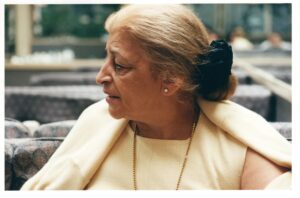
Just as her personality was larger than life, the impact she had on me is much larger than the quantifiable amount of time that we spent in each other’s company.
We’re also part of an extended family in a culture where the furthest relation is as close as your brother or your sister, your mother or your father.
Auntie Laila was married to my Uncle Ed who is in fact my paternal grandfather’s first cousin.
That gives you a sense of how distant we are from one another on the family tree.
However, when it comes to human connection, closeness defies measurement. You cannot measure love in metres, centimetres, and kilometres or miles, inches, and yards.
When it comes to family, to those we love, distance is only every measured in heartbeats, thoughts, and dreams. If you think of a person, then they are with you. If you dream of a person, then they are with you. And when such a person dies, they never leave you.
The strength of the tie between Aunt Laila, her daughter Medina, my mother, and my sisters can be traced to a particular time and place.
We were living in Beirut in the early 1970s when Aunt Laila and Medina came to visit. In my memories, my father wasn’t there. He worked in Kuwait and was typically home for only one week every month or so.
This must have been one of the times he was away. The task of entertaining and touring fell to my Mom who at the time drove a red, four-door Peugeot. We crammed into the car, all six of us, for whichever excursion Mom and Auntie Laila had dreamt up. We would pass the time in conversation, laughter, and with music. In particular, a song.
“You are my sunshine, my only sunshine …”
Whether careening around the streets of Beirut or driving up to Karoun, the family village in the Bekaa Valley, we’d sing loudly and exuberantly with Auntie Laila leading the choir as the minutes ticked by on the clock and the kilometres of asphalt flowed under the tires.
“You make me happy when skies are gray …”
From that point on, Auntie Laila and my mother were sisters and whenever they were together they would gossip, they would giggle, they would laugh out loud. They supported one another, they travelled together, and they cooked for everyone.
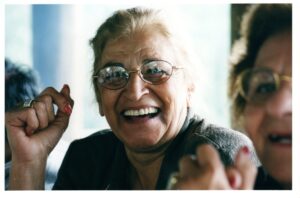
When Mom died in 2015, Auntie Laila was unable to travel to Vancouver for the celebration of life, but she was in that room with us all.
She was there.
Knowing that Auntie Laila’s illness was advancing, and with the loss of another family matriarch that year, I was overwhelmed with the need to see her.
To hug her. To hear her say “Ya aini, ya habibti…”. My eyes, a profound endearment in Arabic, my dear one.
So, Luc and I did just that. We went to see Auntie Laila.
We embarked on a three-week road trip that took us from Vancouver to Kamloops, Jasper, Grande Prairie, Edmonton, Calgary, Lake Louise, Kelowna, and back home. At many stops along the way, we spent time with friends and family members. And in Grande Prairie, we caught up with Auntie Laila and the many relatives there.
It was magical.
“You’ll never know dear, how much I love you
Please don’t take my sunshine away …”
The last time I saw Auntie Laila in person was early December 2019.
I had suggested to my father that we visit Grande Prairie because the one truth that we continue to forget and have to relearn is that life — no matter how much we try to wrestle it to the ground — is random and change can come suddenly even when it seems like we will have forever. The toll of age and illness is never predictable. The time to go and see, to stop and call, to visit and reminisce is always now although it is not often feasible to follow through on such intentions and desires.
We were lucky enough to make plans and to act on them.
Dad and I travelled to Grande Prairie. As he challenged Uncle Ed to consecutive games of crib, I sat on the couch in the family room or in the living room and Auntie Laila sat in her chair. We would chat or not, we watched the Christmas movies playing on the television, or not. It didn’t really matter. What mattered is I could look up and see that she was there. I could smile at her, I could hug her, I could say, “I love you.”
The last time I saw Auntie Laila was just a few weeks ago on March 14th during a Zoom call that gathered households together from around the world to celebrate a number of family milestones.
Auntie Laila didn’t say anything, and she may not have quite understood what all the fuss was about, but just to see her made me tear up because while it felt as if she were in the room with me, she was so very far away.
“The other night dear, as I lay sleeping
I dreamt I held you in my arms …”
And now the connection has been disrupted.
There is comfort in the idea of Auntie Laila at peace, or more accurately — as my cousin Medina said to me on the phone today — she is somewhere cooking, shopping, laughing, gossiping, and partying up a storm with Alma, Haifa, Maza, and Yulanda among so many others.
It is, however, a cold comfort because the void she leaves behind is immense. It is now a distance that we will all only be able to traverse in our dreams, in our memories, and in our hearts.
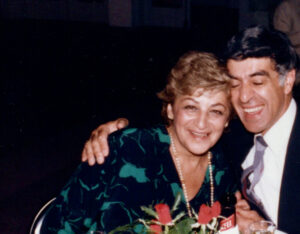
In the stories we share with one another, over the years to come, of a woman who meant so very much to each and every one of us.
“But when I awoke, dear, I was mistaken
So I hung my head and I cried.”
Unnecessary Movie Audience Restrictions
Hieronymus Bosch. A late-Medieval Dutch painter and an artist whose work intrigues my son.
This month the Vancouver International Film Festival Society (VIFF) is screening a movie about curators preparing an upcoming exhibition of Bosch’s work. How interesting! How cultural! How … wait a minute: what do you mean I can’t take my son to see the film?
It turns out that if a film is unclassified, the regulations prohibit the sale of a ticket to anyone under 19. How absurd! Furthermore, when a film is classified and those under 19 are able to attend, the VIFF theatre concession can no longer serve its adult patrons alcohol. How ridiculous!
So, I’ve written a letter to Minister Oakes urging her to cut this red tape and I will mail it this evening.
If you share my point of view on this, please write the Minister, too.
The more she hears from BC voters, the more likely the government will address these anachronistic provisions, which make a mockery of consumer protection.
September 2, 2016
Honourable Coralee Oakes
Minister of Small Business, Red Tape Reduction
& Responsible for the Liquor Distribution Branch
P.O.Box 9054, STN Prov Govt
Victoria, BC V8W9E2
Dear Minister Oakes,
I had wanted to buy tickets for my family to one of the Vancouver International Film Festival Society (VIFF) screenings of a movie about Hieronymus Bosch, the visionary late-Medieval Dutch painter.
Unfortunately, I’m unable to do so since the movie is unclassified and I cannot buy a ticket for my fifteen year-old son.
My son is an artist and has long been intrigued by Bosch’s work. As his parent, I’m very comfortable in accompanying him to this movie. Its content is cultural, informative, historical, and fascinating. It is in no way a threat to his well-being or his psyche. I think anyone would be hard-pressed to argue that he doesn’t have the maturity necessary to watch this particular film.
In inquiring as to why I was unable to take my son to the movie, I have learned that it is provincial law, not VIFF policy, which demands the classification of films before they can be shown to teenagers. Apparently this law covers only theatrical screenings and DVD releases, but not television nor the internet.
This regulatory policy is based on a logical fallacy that an unclassified film is the same as an unsuitable one. It is a level of red tape that not only hinders operations at VIFF, one of Vancouver’s outstanding cultural institutions, but it also assumes that parents are incapable of determining which movies their teenage children may watch.
The same anachronistic regulations prohibit VIFF from allowing liquor in the theatre on Seymour Street when youth under 19 are present. This seems like an unnecessary duplication of restrictions given that concession staff would be prohibited from serving minors. It also diminishes the experience for older patrons who are denied their full privileges simply because the broader classification of a particular movie expands the audience for that particular screening.
I am writing to ask that you review these particular regulations and amend them at the earliest opportunity. Allow teenagers to attend unclassified movies with their parents’ approval and allow liquor service when a movie audience includes those under 19. That would be an effective red tape reduction and a positive support for small business in the cultural sector.
Thank you Minister Oakes for your consideration of the above. I hope that you will take the measures necessary to introduce a more enlightened approach for screenings of unclassified films in Vancouver, whether at the VIFF theatre or at other locations. Such an approach would facilitate the attendance of teens at film events. It is an approach that will draw in younger audiences, not shut them out and without diminishing the experience of older patrons.
Sincerely yours,
Reema Faris
cc.
Honourable Suzanne Anton, Attorney General & Minister of Justice
Jacqueline Dupuis, Executive Director, VIFF Society
Rob Gialloreto, President & CEO, Consumer Protection BC
An “Old Country” Family Favourite
Three days ago, I posted a photo of what I’d made for dinner on social media. It received likes, hearts, compliments, and requests for the recipe.
I’m pleased to share that recipe with you now albeit with hesitation.
Why?
Because I learned to cook from my mother and my grandmother and they didn’t use recipes!
And while I always use recipes for baking and sometimes for savoury dishes, my version of cooking is a little bit of this and a little bit of that and I wonder what this would taste like if I added that.
So take this more as a guideline for preparing Fateh al Laban (laban is the Arabic word for yogurt). Make the dish your own by experimenting with the proportions and the seasoning. There’s a vegetarian option, too, that Mom developed. I’ll describe that alternative after I’ve given you the details for preparing the traditional dish.
There are six components to Fateh: croutons, chickpeas, pine nuts, ground beef, yogurt, and herb garnish. I find it easiest to serve the components separately. Each diner can then assemble a plate according to their likes and dislikes. That also means the leftovers keep better than if they’ve been mixed together.
Croutons
Take two loaves of pita bread. Separate the halves of each loaf and tear them up into bite-sized pieces. Spread on a baking sheet covered with parchment paper and cook in a 350˚ oven until golden brown. Remove and set aside. Regular croutons will work but then you’ll miss out on the Lebanese look!
Chickpeas
Open a small can of chickpeas. Drain and rinse the chickpeas. Let them sit in a colander to dry until you’re ready to serve.
Pine Nuts
Fry a handful of pine nuts in butter until golden. Remove and set aside. Alternatively, mix them with a touch of olive oil and bake in a 350˚ oven until golden brown. Pine nuts burn easily, so check on them frequently if you have them in the oven. If you’re frying the pine nuts, turn off the heat just as the pine nuts begin to brown.
Ground Beef
I typically use .5 kilogram (1 pound) of lean or extra lean ground beef for two and that leaves a lot for leftovers. Fry the ground beef in a pan until cooked through. Season with salt, pepper, and allspice (no more than 15 ml, 1 teaspoon, of the latter). You can also add chopped jalapeño and a few drops of Worcestershire Sauce. Drain and keep at room temperature. As I’m writing this out, I realize that it would also work to mix the pine nuts in with the beef. I might try that next time.
Yogurt
Use approximately 250 ml (1 cup) of plain yogurt. It doesn’t matter which brand you choose or whether the yogurt is skim, 2%, or whole. I’d recommend the 2% or whole — just make sure it’s plain and not French Vanilla! In a mortar, crush 1/2-1 clove of garlic with salt, pepper, and a few, washed, shredded fresh mint leaves. Add the spiced garlic paste to the yogurt and mix thoroughly. You can also mix in diced cucumber to the yogurt mixture for an extra bite.
Garnish
Finely chop a green herb to use as garnish. I use cilantro because L. likes the flavour; parsley is the traditional option. You could also use mint or a combination of any or all three.
And that’s it. Seriously. Those are the components and once they’re ready to go, layer them in a bowl and dig in! I prefer to put the croutons on top rather than using them as a base so that they stay crunchy. If you place them under the yogurt, they get soggy pretty quickly.
Vegetarian Option
- Substitute boiled pasta — rotini or penne works best — for the croutons.
- Substitute broiled eggplant slices for the ground beef.
- Leave out the chickpeas.
- Mix all ingredients together to serve and garnish with chopped herbs.
Sahtain — bon appétit in Arabic — and let me know how your version of this dish works out.
For me, this dish is one of my comfort foods and L. loves it, too.
As with so many things, to share this dish with you is to share memories of Mom and to honour her legacy. Thanks for requesting the recipe.
